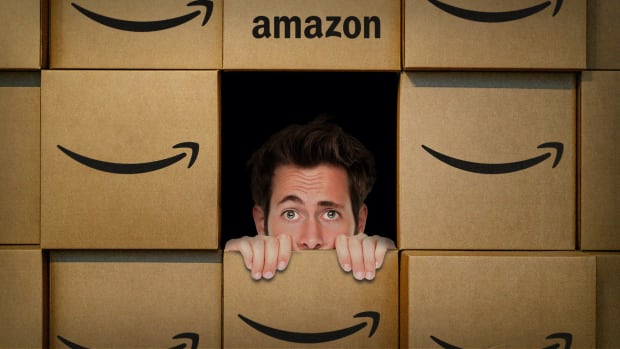
Whether it is the lack of privacy controls, anti-competitive practices, or just plain jealousy over American tech's dominance of the European market, regulators in the EU are taking some of the world's biggest companies to task.
Amazon (AMZN) on Tuesday agreed to settle three complaints, the earliest of which was launched in 2019, telling the EU Commission that it will make major changes to its platform designed to allow more third-party competition against the e-retailer.
"The Commission has decided to accept commitments offered by Amazon. These commitments address our preliminary competition concerns about Amazon practices on its e-commerce marketplace," EU Competition Commissioner Margrethe Vestager said in a news conference, according to Reuters.
Apparently, the EU Commission is more concerned with Amazon changing its ways than it is with securing a big fine against the company because the settlement does not carry a monetary fine for past infractions.
However, the settlement does authorize the Commission to impose a fine of up to 10% of Amazon's annual turnover if the company does breach these commitments in the future.
"While we continue to disagree with several of the preliminary conclusions the European Commission made, we have engaged constructively to ensure that we can continue to serve customers across Europe," an Amazon spokesperson said, according to Reuters.

TheStreet
What Amazon Is Agreeing To
The EU Commission first opened a formal investigation into Amazon's use of its marketplace sellers' non-public data to improve its own products in July 2019.
In November 2020, the Commission opened a second investigation into the criteria Amazon used to select the winners of the Buy Box -- the stack of bright yellow and orange buttons labeled "Add to Cart" and "Buy Now" that appear on some products, significantly increasing visibility for sellers -- saying that the company gave preferential treatment to sellers that used Amazon's logistics and delivery services.
Regulators also found that Amazon's rules and criteria for Buy Box and Prime favored its own retail businesses.
To settle the complains, Amazon agreed to not use non-public data relating to, or derived from, the activity of independent sellers and to not use such data for the purposes of selling branded goods and its own private label products.
To address Buy Box, Amazon committed to treat all sellers equally when ranking offers while selecting the Buy Box winner, and display a second competing offer to the Buy Box winner if there is a second offer from a different seller
To address the complaints about Prime, Amazon agreed to set non-discriminatory conditions for the qualification of marketplace sellers and offers to Prime. It will also allow Prime sellers to freely choose any carrier for their logistics and delivery services.
Will It Be Enough for the EU
The European Commission has made no qualms about its view of American tech companies in recent years.
Microsoft (MSFT), Alphabet (GOOGL), Apple (AAPL), Meta (META) and other big name tech companies have faced, or are facing, billions of dollars in record fines for what the Commission considers to be abuses of power and influence.
Earlier this week, the EU Commission accused Meta Platforms of breaking antitrust rules and imposing "unfair trading conditions" on competing ad services that advertise on Facebook and Instagram.
That investigation comes after Meta was fined $402 million by Ireland's Data Protection Commission, the second largest fine ever issued under the EU's privacy rules
Italy hit Amazon with a $1.3 billion fine last year for for crowding out its competitors by favoring third-party sellers that use the company’s logistics services.
"Large gatekeeper platforms have prevented businesses and consumers from the benefits of competitive digital markets. The gatekeepers will now have to comply with a well-defined set of obligations and prohibitions," the EU said after adopting the Digital Markets Act earlier this year that aims to make the tech sector "fairer and contestable."
The battle for international tech dominance will continue, but the battlefield has a lot of pitfalls for American companies looking to move into Europe's territory.







